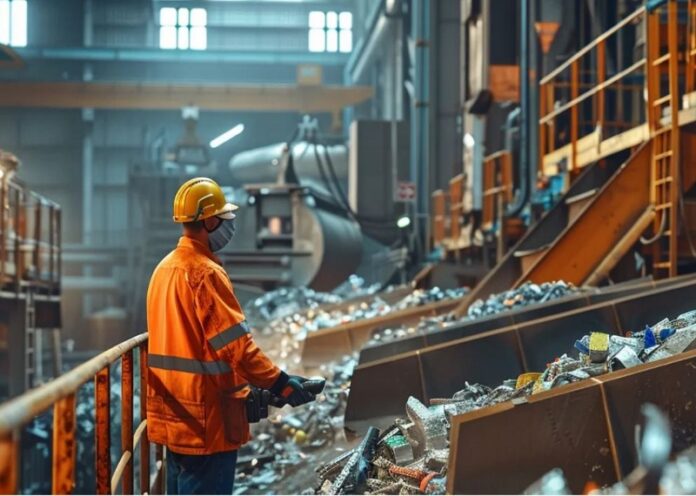Metal and scrap recycling is an integral part of the modern industrial economy with implications that traverse both environmental sustainability and financial growth. It constitutes a significant segment of the materials industry—transforming waste into assets and breathing new life into used resources. By balancing ecological mindfulness and economic pragmatism, recycling creates a circular economy that benefits society at large. Whether in the manufacturing of new products or the conservation of natural resources, the role of this industry cannot be overstated. Keep reading to uncover the multifaceted advantages of metal and scrap recycling.
The Economic Impact of Metal and Scrap Recycling on Industry Growth
The recycling of metals and scraps is not merely a trend; it’s a booming industry that contributes substantially to economic development. The process of reclaiming and processing metals for reuse provides raw materials at a lesser cost than virgin ore extraction, allowing manufacturers to reduce expenses and enhance profitability. As such, recycling is a pivotal force in driving down the cost of production across multiple sectors.
Apart from cost advantages, the industry spurs innovation by necessitating efficient material processing technologies. Companies invest in cutting-edge machinery to handle the intricacies of sorting and refining recycled metals, fostering a technology-focused growth sector. This, in turn, culminates in a competitive marketplace that speeds up both technological advancement and industry expansion.
Recycling also encourages the redistribution of wealth by converting discarded materials into valuable commodities. This activity has a multiplier effect on the economy, catapulting the growth of ancillary businesses, such as transportation, equipment manufacturing, and trade. Nowhere is this circular economic approach more evident than in the realm of metal and scrap recycling.
Energy Conservation and Emission Reductions in Metal Recycling

The energy savings associated with metal recycling are staggering. Manufacturing products from recycled metal uses significantly less energy compared to production with virgin resources. For instance, producing aluminum from scrap requires 95% less energy, which underscores the importance of recovering and reprocessing these materials.
Corresponding to energy reduction, the scrap industry plays an instrumental role in decreasing greenhouse gas emissions. By lessening our reliance on energy-intensive mining and processing practices, the carbon footprint associated with production is dramatically lowered, contributing to cleaner air and a healthier environment.
This eco-friendlier approach also aligns with global efforts to combat climate change. As governments and organizations worldwide advocate for emission reductions, metal recycling stands as a pragmatic solution that yields immediate and measurable results. It is a practical strategy that contributes toward the goals set by international climate agreements.
Job Creation and Economic Stimulus From the Scrap Recycling Sector

The scrap recycling sector is a substantial job creator, offering employment across a diverse range of skill sets. From labor-intensive collection and sorting positions to high-tech jobs in refining and logistics, the industry’s employment spectrum is wide-reaching. As an essential element of the green economy, these jobs are crucial for the continued growth of a sustainable workforce.
In regions where job creation is a top priority, the metal recycling industry can act as an economic stimulus. The warmth of new employment opportunities gives life to local economies, stimulating growth and providing a strong foundation for community development. It’s the intersection of proactive socio-economic policymaking and environmental stewardship.
Moreover, jobs within the recycling sector often provide sustainable and long-term employment. As global demand for environmentally responsible practices increases, so too does the necessity for skilled workers in this field. It is an area replete with opportunities for career advancement and innovation.
Advancing Sustainable Development With Improved Metal Recycling Techniques

The continuous improvement of metal recycling techniques is critical for advancing sustainable development. By enhancing efficiency and finding new ways to reclaim more materials, the recycling industry supports sustainable consumption and production patterns. These advancements also catalyze further research into environmentally friendly technologies.
Improved metal recycling techniques also mean expanded capacity for processing more challenging types of waste. As electronic waste becomes increasingly prevalent, the industry’s role in managing these complex materials is imperative. Developing sophisticated recycling methods helps divert toxic elements from landfills and recovers valuable materials for new uses.
Altogether, metal and scrap recycling is a poignant example of how the economy and environment can coalesce to form symbiotic benefits. Overall, the industry not only safeguards our planet by conserving resources and reducing pollution but also provides the foundation for economic resilience and green growth, shaping a promising future for generations to come.

